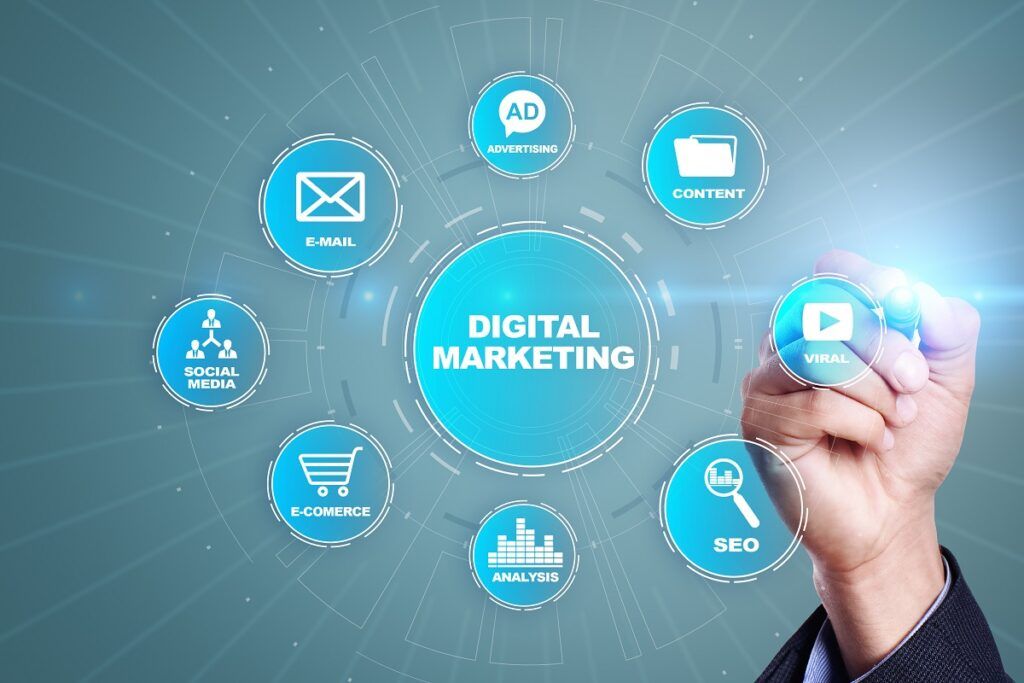Master Marketing for Business: 5 Key Elements for Success

- Why is Marketing Important for Businesses?
- What are the 5 Key Elements of an Effective Marketing Strategy?
- How Can Businesses Measure the Success of Their Marketing Efforts?
- What are the Latest Marketing Trends for Businesses?
- What are Some Common Marketing Mistakes That Businesses Should Avoid?
- Upskill With Emeritus
Is your business failing to reach its full potential? If so, consider the power of marketing for business. In today’s ever-changing and dynamic business environment, where consumers have a plethora of choices and attention spans are limited, businesses must adopt strategic marketing approaches to stand out from the crowd, capture customer attention, and achieve success. As a result, marketing serves as the driving force that propels businesses forward, allowing them to thrive.
This comprehensive guide is a deep dive into the world of marketing for business that covers key elements of the subject. Furthermore, it addresses the measurement of marketing success, explores the latest trends, and highlights common marketing mistakes to avoid. By the end of this guide, aspiring marketing professionals will have the knowledge and tools necessary to leverage the power of marketing and take businesses to new heights.
Why is Marketing Important for Businesses?

Marketing for business is a highly valuable tool as it helps to create brand awareness, drive profit and growth, acquire and retain customers, and enhance engagement. Effective marketing strategies play a pivotal role in establishing a strong presence in the market and connecting with the target audience. Moreover, without effective marketing, businesses may struggle to reach their target audience, compete in the market, and achieve their objectives.
What are the 5 Key Elements of an Effective Marketing Strategy?
1. Branding
To achieve long-term and consistent success, branding is the first step to focus on. Begin by understanding long-term goals, identifying the organization’s strengths and weaknesses, and determining what makes the business unique. Furthermore, utilize this knowledge to create a distinct brand identity for the business: Incorporate elements such as a unique logo, carefully selected colors, fonts, messaging, a consistent tone of voice, and clear brand values. Implementing branding across all marketing channels fosters brand recognition, establishes credibility, and builds trust with the target audience.
ALSO READ: The Ultimate Guide to Mastering the Art of Luxury Branding in 2023
2. Target Market
Secondly, it is crucial to identify and understand the target market for effective marketing. This is because a target market can help businesses concentrate their marketing efforts on customers who are more likely to make purchases. To find one’s target market, begin by conducting research and analyzing the demographics, psychographics, and behaviors of an organization’s ideal customers. By defining the target market, one can customize marketing efforts to align with their needs, preferences, and pain points.
3. Clear Value Proposition
To differentiate the product or service from competitors, develop a compelling value proposition. The value proposition should answer the question: “Why should customers choose your offering?” Describe how the product fills a specific need, outline its additional benefits, and why it surpasses similar products.
4. Multichannel Marketing Plan
Multichannel marketing is a highly effective approach for marketing for business. This strategy involves utilizing various channels, such as social media marketing, advertising, direct mail, emails, and text messages. With multichannel marketing, customers have the freedom to choose and subscribe to their preferred communication channels. This strategy not only enhances brand visibility but also facilitates engagement with customers at different stages of their journey. Furthermore, it allows businesses to maximize their overall reach, ensuring a wider audience is reached through diverse channels.
5. Marketing Measurement and Analytics
Lastly, effective marketing strategies necessitate continuous measurement and analysis to achieve a greater Return on Investment (ROI). This approach aids in tracking performance and making data-driven decisions. Key Performance Indicators (KPIs), such as traffic, conversion rates, and customer acquisition cost, offer insights into the effectiveness of marketing. Furthermore, leveraging these KPIs can identify successful tactics, optimize strategies, and allocate resources efficiently. Consequently, this leads to more informed marketing decisions that yield a higher ROI.
How Can Businesses Measure the Success of Their Marketing Efforts?
To measure the success of marketing for business, identify specific KPIs that align with marketing objectives. Here are some key KPIs that businesses can measure to assess the success of their marketing efforts:
ROI
Measure the revenue or profit generated from marketing activities and compare it to the cost incurred, providing insights into the profitability and efficiency of the investment.
Cost Per Lead
Determine the amount of money spent to acquire each lead, indicating the financial effectiveness of marketing campaigns in terms of lead generation.
Customer Lifetime Value
Predict the net profit attributed to the entire relationship with a customer over their lifetime, helping businesses understand the long-term value and profitability of their customer base.
Conversion Rate
Calculate the percentage of website visitors or leads who take the desired action, such as making a purchase or completing a form, indicating the effectiveness of converting prospects into customers.
Website Traffic
Track the number of visitors actively accessing a website, providing insights into the level of engagement, visibility, and reach of the website among its target audience
ALSO READ: How Business Analytics Tools Can Help You Make Data-Driven Decisions
What are the Latest Marketing Trends for Businesses?
Authentic Long-Form Content
Instead of solely prioritizing short and superficial content, businesses realize the significance of offering comprehensive and insightful resources. This includes content such as blog posts, e-books, videos, and podcasts that deliver value and in-depth information to the audience. Moreover, creating long-form content can help establish expertise and foster trust with the target audience.
Short-Form Video Content
Short-form video content has gained significant popularity as a marketing trend. With the rise of platforms such as TikTok, Instagram Reels, and YouTube Shorts, businesses are leveraging these platforms to create engaging and visually appealing videos that capture the attention of their target audience. Furthermore, utilizing short-form videos can allow a business to showcase its brand personality and establish a connection with its audience.
Chatbots
With the rise of Artificial Intelligence (AI), chatbots have become an increasingly prevalent trend in marketing for businesses. These AI-powered virtual assistants are developed to simulate human-like conversations, delivering instant and personalized responses to user queries. Additionally, chatbots can be seamlessly integrated into websites, messaging apps, or social media platforms. Furthermore, the ultimate aim of chatbots is to enable businesses to enhance customer satisfaction by automating customer interactions, offering 24/7 support, and streamlining the overall customer experience.
What are Some Common Marketing Mistakes That Businesses Should Avoid?

Ignoring Email and SMS Marketing Opportunities
Email and SMS marketing channels provide direct and personalized communication with customers, allowing businesses to nurture relationships, promote offers, and drive conversions.
Not Utilizing Social Media
Failing to establish a strong social media presence can result in missed opportunities to engage with potential customers, share valuable content, and drive traffic to the business website.
Overlooking Proofreading
Careless spelling or grammatical errors in marketing materials can damage the credibility and professionalism of a business.
Not Prioritizing SEO Best Practices
Ignoring SEO best practices, such as optimizing website structure, using relevant keywords, and creating quality content, can lower search engine results in visibility.
Quantity Over Quality
Overemphasizing the production of a high volume of marketing content without ensuring quality and relevance can prove counterproductive. Prioritizing quality over quantity is crucial, as businesses should strive to create valuable and engaging content that resonates with the target audience.
ALSO READ: The Power of Strategic Marketing: A Guide to Unlocking Business Growth
Upskill With Emeritus
To conclude, in this guide on marketing for business, effective marketing practices heavily determine the success of any business. To stay ahead and adapt to customers’ evolving needs, continuous learning is crucial in the dynamic marketing field. If you are looking to enhance your marketing skills and gain an edge in the competitive landscape, explore the sales and marketing courses offered by Emeritus India.
By Krati Joshi
Write to us at content@emeritus.org





